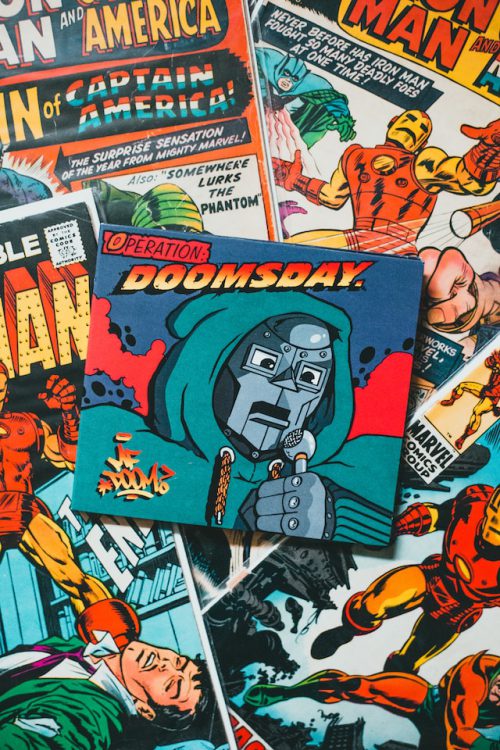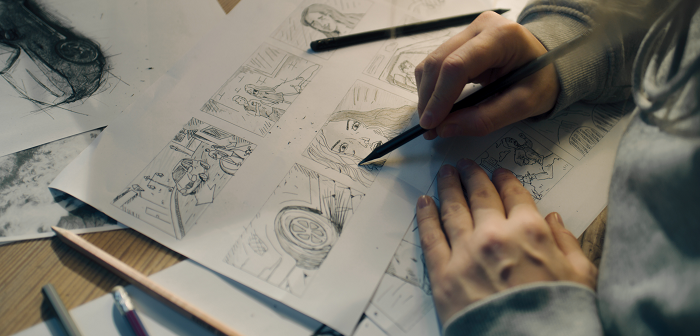If you love comic books and graphic novels, you might have wondered what it takes to create them. You might have also asked, “What is a comic book editor, and what do they do?” A comic book editor oversees the production of comic books and graphic novels from conception to publication.
They collaborate with writers, artists, letterers, colorists, and publishers to ensure that the comic books meet high quality, originality, and appeal standards. They also manage the comic book’s budget, schedule, and marketing. They are vital for the success of any comic book project, as they help shape the vision, direction, and style of both the story and the artwork.
Furthermore, they act as the creative team’s mentors, collaborators, and critics. Comic book editors are passionate about comics and possess a keen eye for detail, a strong sense of storytelling, and a thorough understanding of the industry. Here, we will delve into aspects of being a comic book editor and how to become one.
What Are the Duties of a Comic Book Editor?
A comic book editor’s main duties is supervising the production of comic books and graphic novels. This involves:
- Finding and hiring writers, artists, letterers, colorists, and other professionals who can work on the comic book project.
- Reviewing and editing the scripts, sketches, layouts, pencils, inks, colors, letters, and proofs of the comic book pages.
- Providing feedback, suggestions, corrections, and approval to the creative team.
- Coordinating with the publisher and the printer to ensure that the comic book meets the quality standards, deadlines, and specifications.
- Managing the budget and the schedule of the comic book project.
- Promoting and marketing the comic book to the target audience and the media.
Another duty of a comic book editor is to develop new ideas and concepts for comic books and graphic novels. This involves:
- Researching and analyzing the trends, demands, and preferences of the comic book market and audience.
- Brainstorming and pitching original and innovative ideas for stories, characters, genres, themes, formats, and styles.
- Collaborating with writers and artists to create outlines, proposals, and samples for new comic book projects.
- Negotiating contracts and rights with publishers and creators.
What Are the Skills of a Comic Book Editor?

To be a successful comic book editor, you need to have a variety of skills, such as:
- Writing skills
A comic book editor must have strong writing skills to produce clear, concise, and compelling texts. They must effectively convey ideas, instructions, and feedback while demonstrating grammar, spelling, and punctuation proficiency. They must also have a good command of the language and vocabulary of comics and graphic novels, such as dialogue, narration, captions, sound effects, and onomatopoeia.
- Editing skills
An editor must possess the expertise to review, edit, and proofread texts and images, enhancing their quality, accuracy, and consistency. They need an eye for detail, an aesthetic sense, and a comprehensive understanding of style guides and formatting conventions. They must also know the genre and market of comics and graphic novels, such as superheroes, horror, or manga.
- Communication skills
Effective communication is essential for interacting with writers, artists, publishers, and media outlets. A skilled comic book editor communicates professionally, courteously, and respectfully. They actively listen, comprehend, and respond to the needs, concerns, and feedback of others—while having good negotiation and persuasion skills to deal with contracts, deadlines, and budgets.
- Management skills
A comic book editor adeptly manages multiple tasks, projects, and personnel, ensuring organization, efficiency, and timeliness. They exhibit aptitude in planning, coordinating, and delegating work and resources effectively. They also need good problem-solving and decision-making skills to handle challenges and issues that may arise during the production process.
- Creative skills
A successful editor demonstrates creativity, generating new and original ideas and concepts for comic books and graphic novels. They possess a passion for comics and a talent for storytelling. They must also have a good sense of humor and imagination to create captivating, realistic, original characters and scenarios.
How to Become a Comic Book Editor?

Image source
There is no fixed or formal path to becoming a comic book editor. However, there are some steps that you can take to increase your chances of landing this role, such as:
- Education
Gain a strong foundation in relevant fields such as writing, editing, journalism, literature, art, or media. Take advantage of courses or workshops that focus on comics, graphic novels, their history, theory, practice, and industry. This knowledge will provide a solid base for your career.
- Experience
Acquire practical experience in writing or editing comics or related fields. Seek opportunities to work as a freelance writer or editor for comic book publishers, websites, magazines, or independent projects. Your hands-on experience will help you develop your skills and build a portfolio.
- Portfolio
Develop a comprehensive portfolio highlighting your skills as a writer or editor. Include samples of scripts, sketches, layouts, colors, letters, and proofs of comic book pages you’ve worked on to showcase your abilities and style. Seek feedback from industry professionals to enhance your portfolio and demonstrate your commitment to excellence.
- Networking
Build a strong network of contacts within the comic book industry. Attend relevant events, such as conventions, conferences, festivals, or workshops, where you can connect with industry professionals, creators, and enthusiasts. Engage in online forums, social media groups, or communities focused on comics and graphic novels.
- Continuous Learning
Stay updated with industry trends, new technologies, and evolving storytelling techniques within the comic book field. Read widely, explore different genres and styles, and study the work of established comic book editors. Continuously improving your craft and staying informed will enhance your chances of success.
Conclusion
Comic book editors oversee the production of high-quality and appealing comic books and graphic novels. They collaborate with writers, artists, letterers, colorists, and publishers. Additionally, they contribute to the development of new ideas and concepts.
To excel as a comic book editor, one must possess writing, editing, communication, management, and creativity skills. Education, experience, a portfolio, and a network within the comic book industry are beneficial for pursuing this role. If you love comics, attention to detail, strong storytelling abilities, and a solid understanding of the industry, a career as a comic book editor may be fulfilling for you.





Acquire practical experience in writing or editing comics or related fields. Seek opportunities to work as a freelance writer or editor for comic book publishers, websites, magazines, or independent projects. Your hands-on experience will help you develop your skills and build a portfolio.
I’m happy to chat on your blog, and it seems like I should be looking forward to more dependable content. I believe that all of us would like to thank you for sharing so many fantastic articles and blogs with us.
Very useful article, providing an insight into the work of a comic editor. I like how the author details the editor’s responsibilities such as working with writers and artists, editing scripts, giving feedback, and keeping issues consistent. The section on how to become an editor is also very useful, especially the advice on starting in secondary roles and building relationships in the industry. Overall this is a great guide for anyone wanting to pursue a career in comics editing.